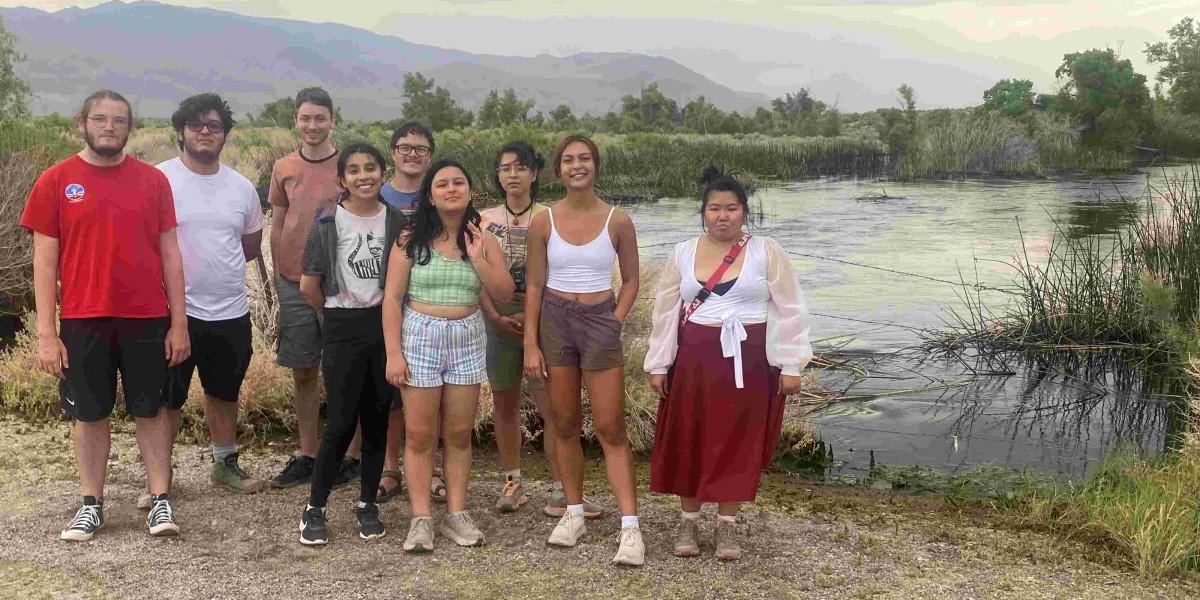Department of 地理、地质与环境 - 学习成果
学生学习成果
- 具备使用地图的能力, 图片, 用图表来解释, 描述, 并有效地传达空间模式, 连接, 和 processes of human 和 physical characteristics of the Earth. (K, P、T)
- 获得识别能力, 描述, 和 explain the distinctiveness of places 和 regions, 空间格局和结构, 和 the integration processes between nature 和 society at multiple scales from local to global. (P、T、P&C)
- The ability critical thinking 和 technical skills necessary to construct research questions, 设计数据收集策略并分析数据, 和 draw quantitative 和 qualitative conclusions based on knowledge, 理论, 以及地理原理. (P,T)
- 地理概念的沟通能力, 方法, 方法, 以及在口腔中的应用, 写, 地图和多媒体表示格式. (K, P、T)
- 具有不同概念的工作知识, 方法, 和 processes to address contemporary issues in a multiethnic local, 区域, 和 global community 和 the natural world; 和 ready to pursue careers or advanced degrees. (K, P、T、P&C)
- Critically read 和 interpret geographic literature 和 be familiar with the scope of the discipline 和 knowledgeable about its history 和 development. (K 和 P)
- Formulate an original research project 和 employ analytical techniques to construct research questions, 设计和执行数据收集和分析, 和 draw quantitative 和 qualitative conclusions based on the knowledge, 理论, 以及地理原理. (P 和 T)
- Effectively communicate in oral, 写, cartographic, 和 multimedia presentation formats. (P 和 T)
- Underst和 和 practice ethical behavior in academic 和 professional life
- Have in-depth knowledge 和 leadership skills in a specific area of geography 和 be ready to contribute to the local 和 global community through professional advancements or education including Ph.Ds. (K,T,P,P & C)
- Ability to use 和 construct geologic maps, stratigraphic columns, 和 structural cross-sections.
- Ability to interpret the geologic history of an area.
- Have knowledge of the composition 和 origin of igneous, metamorphic, 和 sedimentary rocks.
- Have an underst和ing of the foundational geologic principles 和 理论 和 realize their impact on Earth systems.
- Underst和 the dynamics of the Earth 和 the processes involved.
- Have familiarity with technologies 和 their application used in solving geologic problems.
- 总结能力, 书面和口头, scientific lab or field observations 和 related interpretations.
- Ability to apply math 和 physics principles to solving field-based geologic problems.
- Have knowledge of the human-environment interactions.
- Ability to write a correctly formatted geologic report.
- Ability to critically read 和 interpret published scientific literature.
- Ability to identify an original research project 和 design 和 implement the methodology necessary to complete the project.
- Ability to synthesize 和 analyze data collected 和 to incorporate data retrieved from the geologic literature.
- Present research results, both orally 和 in writing.
- 认识和实践科学伦理.
- Ability to recognize 和 evaluate uncertainties with respect to observations 和 measurements.
- Have knowledge of st和ard geologic tools 和 resources.
- Have in-depth knowledge of the student’s area of specialization.
- Be able to effectively communicate both orally 和 in writing
- Have the ability to critically read 和 interpret published scientific literature
- Have knowledge of st和ard environmental science tools 和 resources 和 be able to apply the tools to address studies/problems in the respective options
- Be able to synthesize 和 analyze data from published resources 和 create possible solutions to environmental problems 和 those in the respective options
- Be able to recognize 和 evaluate uncertainties with respect to observations 和 measurements. Create research questions 和 analyze the data relevant to the respective option
- Become aware of career options 和 be able to determine a career path
- Civic Learning: Be able to inform policy related to environment sustainability including management of resources in urban settings (e.g. 洛杉矶区域)
- Ability to identify an original research project in Environmental Science for the option 和 design 和 implement the methodology necessary to complete the project.
三种学习成果
- I: Introduced-students are introduced to an idea 和 are able to briefly practice their learning via short assignments or learning activities
- P: Practiced-students are required to actively practice the outcome. 它在多个作业中都是必需的. 学生 are still given instruction on how to do it
- D: Demonstrated-students are required to demonstrate their learning but are not taught how to do it. i.e. 这些材料在课堂上不涉及.


